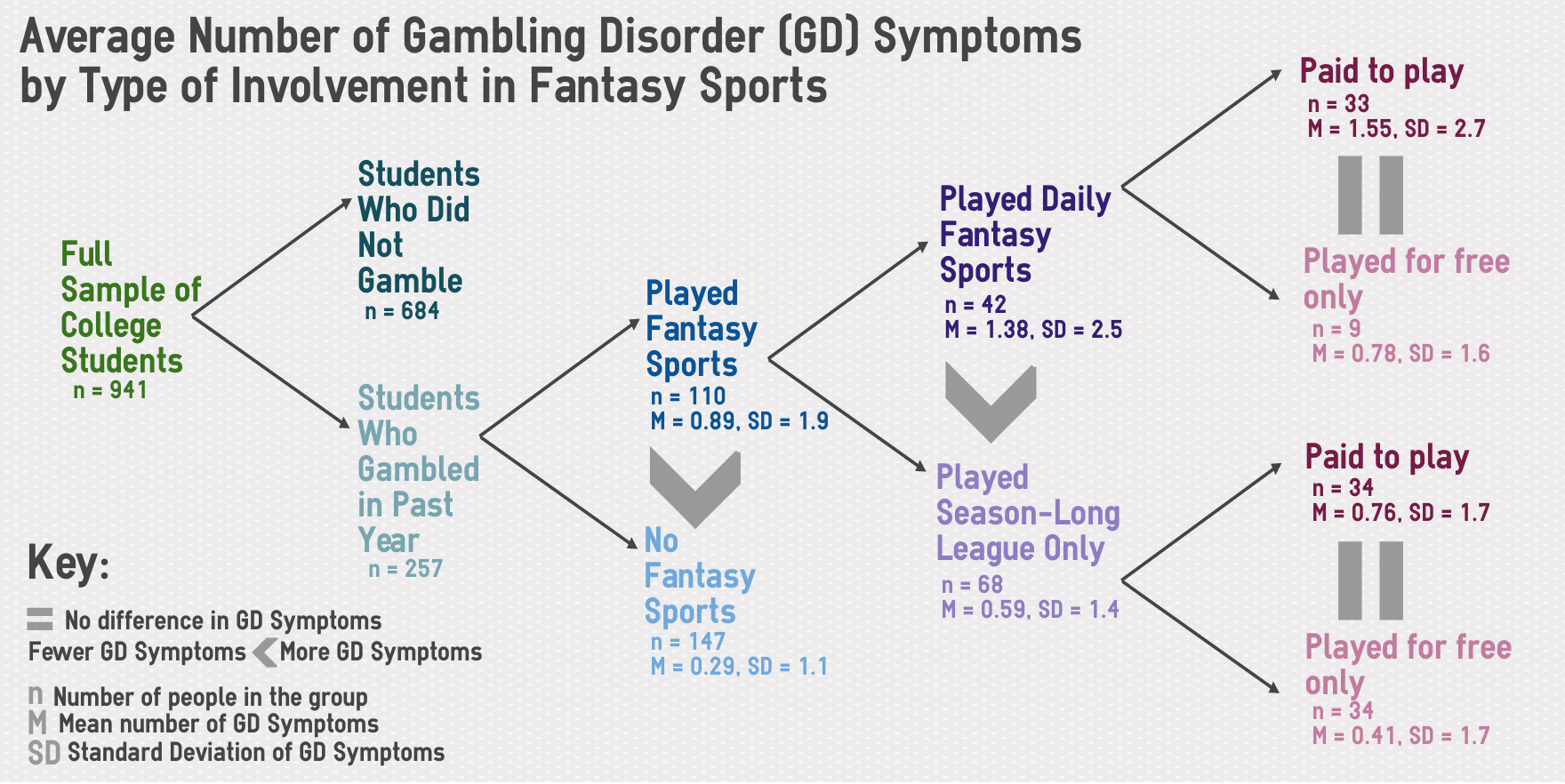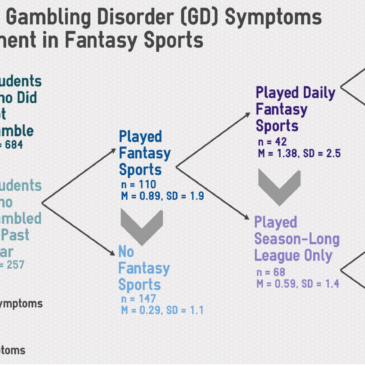Online fantasy sports contests can be played over the length of a season, week, or even a single day, and they typically require entry fees or deposits. In paid competitions, similar to sports betting, fantasy sports players have a chance of winning money based on their performance. This begs the question of whether people who are deeply involved in fantasy sports might be more likely to experience symptoms of Gambling Disorder (GD) – a question that is all the more important as online fantasy sports gain more popularity. This week, as part of our Special Series on Gambling Disorder, The WAGER reviews a study by Ryan Martin and his colleagues that examines associations between fantasy sports involvement and GD symptoms in college students.
What was the research question?
Do college students who pay to play fantasy sports experience more symptoms of GD than students who play for free or don’t play at all?
What did the researchers do?
The researchers distributed an online survey to 982 college students at three different universities in the U.S. The survey asked the students how often they gambled, whether they had experienced each of the nine symptoms of GD, whether they had participated in season-long or daily/weekly fantasy sports (and if so, if they had paid for it). They had complete data from 941 participants. Of these 941 participants, 771 did not play fantasy sports in the past year, 125 played season-long fantasy sports only, and the remaining 45 played daily fantasy sports (including some who played both season-long and daily fantasy sports).
What did they find?
In total, 4.9% of participants reported 1 or more symptoms of GD, and 27.3% had gambled in the past year. Those who played daily fantasy sports were most likely to have gambled in the past year, followed by those who played season-long fantasy sports only, and then by those who didn’t play fantasy sports at all.
What about GD symptoms? Of those who gambled during the past year, those who played online fantasy sports endorsed significantly more symptoms of GD, on average, than those who did not play fantasy sports. Further, those who played daily fantasy sports endorsed significantly more GD symptoms on average than those who played only season-long fantasy sports. However, paying to play was unrelated to GD symptoms. See Figure.
 Figure. This tree diagram represents how the sample of students who had gambled in the past year were broken into subgroups for comparison. Click image to enlarge.
Figure. This tree diagram represents how the sample of students who had gambled in the past year were broken into subgroups for comparison. Click image to enlarge.
Why do these findings matter?
Although people speculate about fantasy sports being potentially being a risky activity, researchers are only beginning to study this activity. This study suggests that a relationship exists between fantasy sports play and Gambling Disorder symptoms. It should encourage more research about the precise nature of this relationship.
Every study has limitations. What are the limitations in this study?
It is unclear from this study what the association between GD symptoms and daily fantasy sports is. Students who played daily fantasy sports were also more likely to have gambled in the past year – so, are their GD symptoms tied to their fantasy sports involvement, or a result of their gambling habits? The researchers also did not attempt to define “gambling” in the survey, so participants used their own interpretations of gambling. Therefore, some participants might have been miscategorized. For example, some students might (accurately) consider playing cards for money to be a form of gambling, whereas others might not.
For more information:
If you are concerned about your gambling habits, the Brief Biosocial Gambling e-Screener can help you assess your risk of experiencing gambling-related problems and direct you to helpful resources.
— Rhiannon Chou Wiley
What do you think? Please use the comment link below to provide feedback on this article.




